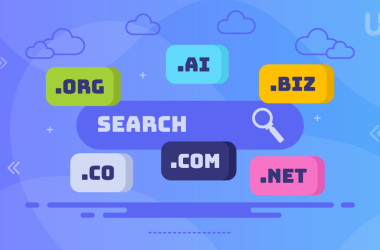As businesses and individuals strive to establish and maintain a strong digital footprint, understanding the relationship between SEO and security has become a strategic imperative. The online environment is a vast marketplace and a virtual arena where information is exchanged at an unprecedented pace. With this exchange comes the heightened importance of security.
Cyber threats, ranging from data breaches to hacking attempts, have become prevalent, making it imperative for individuals and businesses alike to fortify their digital defenses. A secure online environment is crucial not only for protecting sensitive data but also for maintaining users’ trust.
Brief Overview of SEO

SEO is the cornerstone of digital visibility, encompassing a set of practices and techniques designed to enhance a website’s ranking on search engine results pages (SERPs). From keyword optimization to content relevance and backlink building, SEO is a dynamic field that directly influences the discoverability of web content. Websites that effectively leverage SEO techniques stand a better chance of reaching their target audience and achieving online success.
Relationship Between Data Protection and Search Engine Rankings
The relationship between data protection and search engine rankings is intricate yet powerful. Search engines, with their ever-evolving algorithms, now place a premium on the security of websites. Secure websites not only provide a safer browsing experience for users but also align with the criteria that search engines use to rank pages. As algorithms become more sophisticated, factors such as HTTPS, robust authentication mechanisms, and overall website security contribute significantly to a website’s position on SERPs.
The Role of Security in SEO
As the custodians of the virtual highway, search engine algorithms continually adapt to the dynamic online environment. In recent years, a shift has occurred, with algorithms placing a considerable emphasis on the security posture of websites. Google, the primary arbiter of search algorithms, has explicitly endorsed and incentivized secure website practices through its rankings. Websites that prioritize security not only safeguard sensitive user information but also align themselves with the criteria that search engines consider for Google ranking prominence.
The algorithms now take into account whether a website implements HTTPS protocols, indicating secure data transmission through encryption. This shift not only underscores the commitment of search engines to user safety but also emphasizes the pivotal role security plays in the overall evaluation of a website’s relevance and credibility.
Common Security Threats
A lurking presence of potential threats accompanies the flourishing opportunities for online engagement. Understanding these common security threats is imperative for any entity navigating the intricacies of the virtual world. From malicious hacking attempts to insidious data breaches and the pervasive specter of malware, the digital environment is filled with challenges that demand not just vigilance but a need for fast VPS solutions to ensure swift and strategic defense against these evolving menaces.
Overview of Prevalent Online Threats
Hacking
The term “hacking” encapsulates a myriad of techniques employed by cybercriminals to gain unauthorized access to systems or sensitive data. This can range from exploiting vulnerabilities in software to employing sophisticated social engineering tactics. Hacking poses a constant and evolving threat, demanding robust security measures to safeguard against potential breaches.
Data Breaches
A data breach occurs when unauthorized individuals gain access to confidential information, often with the intent of exploiting or disseminating sensitive data. These breaches can compromise user privacy, tarnish organizational reputations, and have far-reaching legal implications. As custodians of vast amounts of user data, websites are prime targets for malicious actors seeking to exploit vulnerabilities.
Malware
Malicious software, or malware, represents a broad category of harmful programs designed to disrupt, damage, or gain unauthorized access to computer systems. This includes viruses, ransomware, spyware, and trojans, each posing unique threats to the security and functionality of websites. Malware attacks can result in data loss, financial losses, and severe damage to a website’s reputation.
The consequences of security breaches extend far beyond the immediate technical ramifications. The credibility of a website, once compromised, can suffer irreparable damage. Users, rightfully concerned about the safety of their personal information, may lose trust in a website that falls victim to a security breach. This erosion of trust has a direct and adverse impact on user engagement, potentially leading to a decline in traffic and conversion rates.
Data Protection Measures for SEO Enhancement
Safeguarding user data has become not only a legal imperative but a critical factor in mastering SEO. As search engines increasingly prioritize secure websites, understanding and implementing data protection measures are essential for optimizing for compliance and improved visibility and trust in the virtual arena.
HTTPS as a Ranking Signal
Hypertext Transfer Protocol Secure (HTTPS) stands as a formidable ally in the quest for a secure online environment. It encrypts the data transmitted between a user’s browser and the website, ensuring that sensitive information remains confidential during the transfer.
Beyond its fundamental role in data security, Google and other search engines recognize HTTPS as a ranking signal. Websites that implement HTTPS protocols enjoy a distinct advantage in search engine algorithms. This not only contributes to a more secure online experience but elevates the website’s standing on search engine results pages (SERPs).
Secure your website with an SSL certificate to enable HTTPS, not only for the SEO benefits but also to foster user trust by visibly indicating a secure connection through the padlock icon in the browser address bar.
Importance of Authentication Mechanisms
Verifying the identity of users and limiting access to authorized individuals is significant. Robust authentication mechanisms, such as two-factor authentication (2FA), add an additional layer of defense against unauthorized access. This not only protects user accounts but also fortifies the overall security posture of the website.
From an SEO perspective, the importance of authentication extends beyond data protection. A secure login process minimizes the risk of unauthorized access, preventing potential damage to a website’s content and reputation. Search engines reward websites that prioritize user security, further bolstering their ranking positions.
Transform Your Digital Presence Today!
Ready to change your website with the winning combination of SEO and security? Explore the insights in our blog and take the first step toward a resilient online presence. Elevate your SEO game with the right hosting – check out our SEO-optimized VPS solutions
Regular Website Security Audits
Ensuring the ongoing security of a website requires proactive measures, and regular security audits and vulnerability assessments are instrumental in identifying and addressing potential weaknesses. These assessments involve systematic reviews of a website’s infrastructure, codebase, and configurations to uncover vulnerabilities before malicious actors exploit them.
Beyond the inherent security advantages, conducting regular security audits positively influences SEO. Search engines favor websites that demonstrate a commitment to maintaining a secure digital environment. Regular audits signal to search algorithms that the website is actively managing and fortifying its defenses against potential threats, resulting in a positive impact on rankings.
Privacy Policies and User Trust
Privacy policies serve as the bedrock of transparency between websites and their users. Clearly outlining how user data is collected, stored, and utilized builds trust and establishes expectations. This becomes increasingly important in an era where data privacy concerns are at the forefront of user consciousness.
Search engines recognize the significance of privacy policies in fostering user trust. Websites that have transparent and comprehensive privacy policies are viewed favorably by search algorithms. This positive perception contributes to higher rankings as search engines prioritize user experience and satisfaction.
Legal Compliance and SEO
From a global perspective, data protection regulations have emerged as beacons of user rights and privacy. Notable among these are the General Data Protection Regulation (GDPR) in Europe and the California Consumer Privacy Act (CCPA) in the United States. These regulations mandate stringent requirements for collecting, processing, and storing user data, placing a premium on transparency and accountability.
Legal compliance is not merely a checkbox; it is a fundamental aspect of SEO strategy. Search engines, aligning with the principles of data protection regulations, reward websites that comply with these standards. Failure to adhere to legal requirements can result in penalties, but more importantly, it erodes user trust and has a detrimental impact on search engine rankings.
Technical SEO and Security Integration
Importance of a Secure Hosting Environment
A secure hosting environment is the bedrock upon which the fortress of website security stands. The choice of hosting provider, server configurations, and network defenses all contribute to the overall security measures of a website. Search engines recognize the importance of this foundation, with a secure hosting environment serving as a fundamental trust signal.
Optimizing Website Speed and Performance
The need for speed in the digital age is not just a user preference but a crucial SEO factor. Speed and performance optimization not only enhance user experience but also contribute to the security of a website. Search engines favor fast-loading sites, considering them more user-friendly and reliable.
Implementing Structured Data
Structured data, in the form of schema markup, provides search engines with additional context about the content on a website, and can be checked during a technical SEO audit. Beyond traditional SEO, structured data can be leveraged to convey security-related information, such as encryption methods and security certifications. This proactive approach not only aids search engine visibility but also communicates a commitment to security.
Future Trends in SEO and Security
SEO and security are ever-evolving processes shaped by emerging technologies. Artificial Intelligence (AI), machine learning, and advanced analytics are revolutionizing how search engines evaluate and rank websites. Similarly, innovations in encryption and cybersecurity technologies are redefining the standards for data protection.
As search engine algorithms continue to evolve, the integration of security factors into ranking criteria is expected to become more sophisticated. Search engines will likely place greater emphasis on user safety, requiring websites to stay ahead of the curve in implementing advanced security measures. This evolution emphasizes the need for dedicated server solutions to ensure a secure online environment.
Adaptability is the key to staying ahead in the dynamic intersection of SEO and security. Proactive monitoring of algorithm updates, continuous security assessments, and embracing emerging technologies will be essential strategies for maintaining a competitive edge in the digital realm.
Conclusion
From user perception and trust signals to legal compliance and technical integration, the journey toward a secure and optimized online presence is multifaceted. By embracing data protection practices, adhering to legal standards, and staying attuned to emerging trends, websites can navigate both search engines and user expectations. The relationship between SEO and security is not just a matter of compliance; it is a pathway to enhanced visibility, credibility, and lasting trust in the boundless expanse of the digital domain.
Discover how secure WordPress hosting can be your digital ally in maintaining a resilient and protected online environment. Explore more at Ultahost and empower your website for success in the ever-evolving landscape. Here’s to a secure, visible, and trusted online journey ahead!
FAQ
What is the key takeaway from the relationship between SEO and security?
The relationship between SEO and security is not just about compliance; it’s a strategic pathway to enhanced visibility, credibility, and lasting trust in the digital domain. Prioritizing data protection practices ensures not only legal compliance but also a fortified online presence that resonates positively with both users and search engines.
What is structured data, and how does it enhance search engine visibility?
Structured data, implemented through schema markup, provides additional context about website content to search engines. While traditionally used for SEO, structured data can also convey security-related information, such as encryption methods, further enhancing search engine visibility and communicating a commitment to security.
How do data protection practices contribute to user trust?
Data protection practices, such as secure data transmission, authentication, and transparent privacy policies, contribute to user trust by demonstrating a commitment to safeguarding sensitive information. When users feel confident that their data is handled responsibly, trust is established, leading to positive user experiences and increased engagement.
Why is security important for SEO?
Security is crucial for SEO because search engines prioritize safe and secure websites. Implementing security measures not only protects user data but also serves as a positive ranking factor in search algorithms. Secure websites inspire trust, leading to improved user experience and higher search engine rankings.










